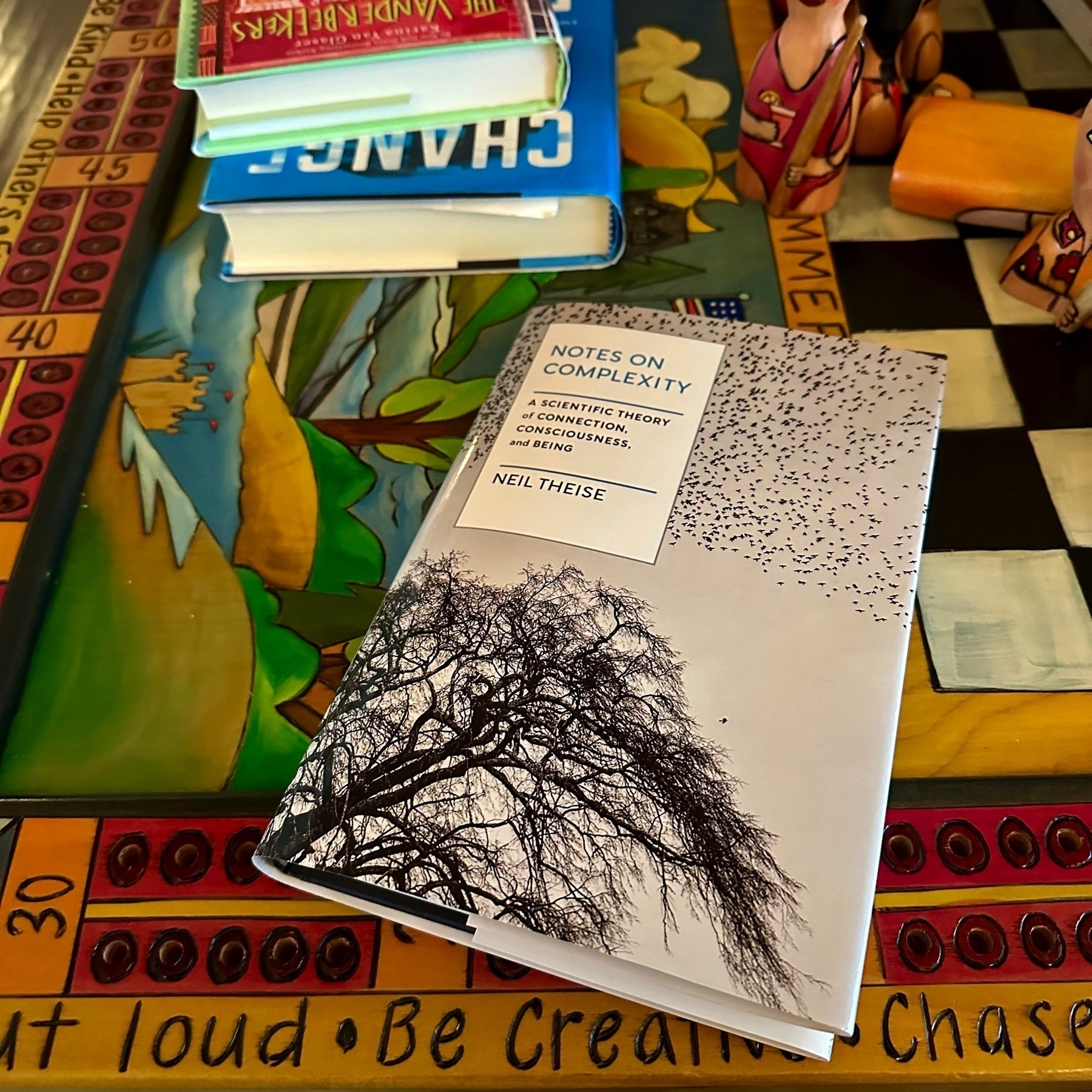Notes on Complexity by Theise
I finished reading Notes on Complexity by Neil Theise this morning. It is a quick read just under 200 pages, and I think would be best thought of as a quick overview of very deep topics on complexity theory and winding all the way to consciousness.
I found it immediately engaging because my own reading on Buddhism has left me intrigued by how well it connects to some very big scientific concepts. I’ve also been listening and meditating using Sam Harris’ Waking Up which frequently visits topics around “the observer” and consciousness.
What I took from Theise’s notes were parallels between Relativity and Quantum Mechanics, and Formal Logic and Metaphysics.
From this idealist view, then, the universe as a whole, including each of our bodies, brains, and minds, is nothing but a manifestation arising from the depths of an underlying Consciousness. Space, time, matter, and energy, the quantum foam, all the structures that emerge from these, have no inherent existence but are simply experiences within that Consciousness. Idealism affirms, in the grandest way possible, that the brain doesn’t make consciousness; it is Consciousness that makes the universe, out of which, after billions of years, our brains have emerged to be the most complex structure we have yet discovered. And thus, if everything is only a subjective experience of the big-C Consciousness, then the hard problem of what creates subjective experience ceases to be a problem. There is nothing in the universe that is not the subjective experience of Consciousness.
This call out about artificial intelligence was interesting as well. Most people approach this question as consciousness derives from enough intelligence. But considering consciousness and intelligence as independent properties suggests a very different outcome.
It heralds an approach to how we can navigate from the strangeness of quantum realms up into the normal-seeming, classical realms of everyday experience. It also suggests that algorithmically programmed computers can produce artificial intelligence, but not true consciousness, because consciousness is not just an emergent property of complex programming. If one wants to make “real” artificial intelligence, then computers need to become transducers of awareness, as brains are, a matter that seems beyond complex programming.
This isn’t a field that I have the depth to explore in detail, but I find the connections interesting and enjoy the exploration.
